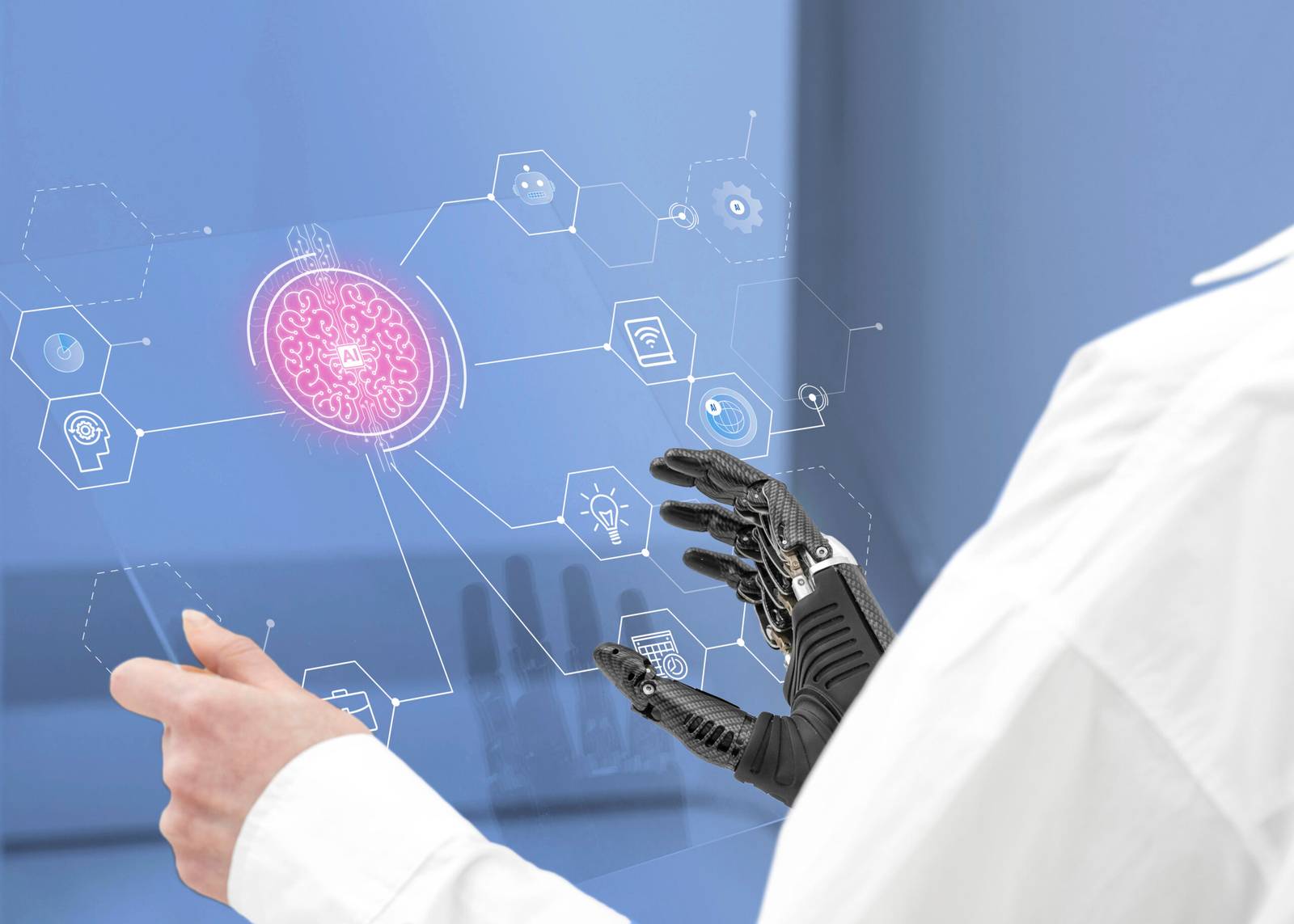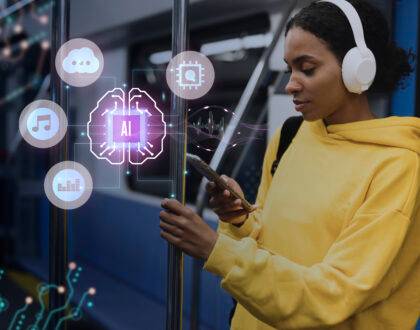AI in Healthcare: Transforming Diagnosis and Treatment

by Web Digital
Artificial Intelligence (AI) has rapidly evolved into a powerful force in the healthcare industry. It has the potential to revolutionize the way medical professionals diagnose and treat patients, improving accuracy, efficiency, and patient outcomes. In this article, we will explore the significant impact of AI on healthcare in Canada, how it’s transforming diagnosis and treatment, and the challenges and opportunities it presents.
1. Healthcare Early Diagnosis and Disease Detection
One of the primary benefits of AI in healthcare is its ability to assist in early disease detection. AI-driven algorithms can analyze vast datasets, such as medical images, genetic information, and patient records, to identify early signs of diseases like cancer, diabetes, and cardiovascular conditions. For instance, AI can analyze medical images like X-rays, MRIs, and CT scans, enabling radiologists to spot abnormalities that might be missed with the naked eye. This early detection can lead to timely intervention and improved prognosis.
2. Personalized Treatment Plans
AI helps create personalized treatment plans tailored to an individual’s unique genetics, medical history, and lifestyle. This approach, known as precision medicine, can optimize the effectiveness of treatments and reduce adverse reactions. AI analyzes patient data to determine the most suitable medications, dosages, and treatment strategies, enhancing the overall quality of care.
3. Drug Discovery and Development
Pharmaceutical companies are increasingly using AI to expedite drug discovery and development. AI algorithms can identify potential drug candidates by analyzing vast chemical and biological datasets. This accelerates the research and development process, potentially bringing life-saving drugs to market more quickly. Moreover, AI assists in predicting how drugs will interact with the human body, leading to safer and more effective treatments.
4. Virtual Healthcare Assistants
Virtual health assistants powered by AI are becoming valuable tools for healthcare providers and patients. These AI-driven chatbots and virtual nurses can provide patients with health advice, and medication reminders, and even answer medical queries. This technology enhances patient engagement, improves adherence to treatment plans, and reduces the burden on healthcare professionals.
5. Predictive Analytics and Preventive Care
AI’s predictive analytics capabilities enable healthcare providers to identify patients at high risk for specific conditions. By analyzing patient data, AI can predict the likelihood of disease development and recommend preventive measures. This approach transforms healthcare from reactive to proactive, leading to improved patient outcomes and reduced healthcare costs.
6. Robotic Surgery and Assistance
Robot-assisted surgery is a groundbreaking application of AI in healthcare. Surgical robots equipped with AI algorithms can assist surgeons in performing complex procedures with remarkable precision. These robots can minimize invasiveness, reduce recovery times, and enhance the overall surgical experience for patients. AI-powered robots are also used for tasks like drug dispensing, sterilization, and physical therapy.
7. Real-time Monitoring and Diagnostics
Wearable devices and IoT technology combined with AI offer real-time monitoring of patients’ vital signs and health parameters. These devices can detect irregularities and send alerts to healthcare providers or patients themselves. AI can continuously analyze this data, enabling early intervention and personalized care adjustments.
8. Health Data Management
Managing and interpreting the vast amount of health data is a challenging task. AI streamlines this process by organizing and analyzing electronic health records (EHRs), medical images, and clinical notes. It ensures that healthcare professionals have easy access to critical patient information, reducing errors and improving the quality of care.
Challenges and Ethical Considerations
While AI holds enormous promise for healthcare, it also raises several challenges and ethical considerations. Data privacy, security, and the responsible use of AI are paramount. Ensuring that patient data is protected, algorithms are transparent, and biases are minimized is crucial. Additionally, there is a need for regulatory frameworks to guide the development and deployment of AI in healthcare.
The Future of AI in Healthcare
The future of AI in healthcare is bright and filled with opportunities for innovation. As AI algorithms become more sophisticated and data collection and sharing become more standardized, the potential for improved patient care and medical breakthroughs is immense. AI will continue to play a vital role in healthcare, making diagnosis and treatment more efficient, accurate, and patient-centric.
Conclusion
AI is rapidly transforming the landscape of healthcare by enhancing diagnosis and treatment. From early disease detection to personalized treatment plans and drug discovery, AI offers a wide range of benefits. It’s not a replacement for healthcare professionals but a powerful tool that assists them in delivering higher-quality care. While challenges and ethical considerations remain, the potential for improving patient outcomes and advancing medical science is undeniable. The integration of AI in healthcare represents a paradigm shift that will continue to evolve and shape the future of medicine.
Recommended Posts

Sustainable Agriculture through Technological Solutions
December 1, 2023

The Evolution of Artificial Intelligence in Healthcare
December 1, 2023

The Role of AI in Precision Medicine
December 1, 2023
